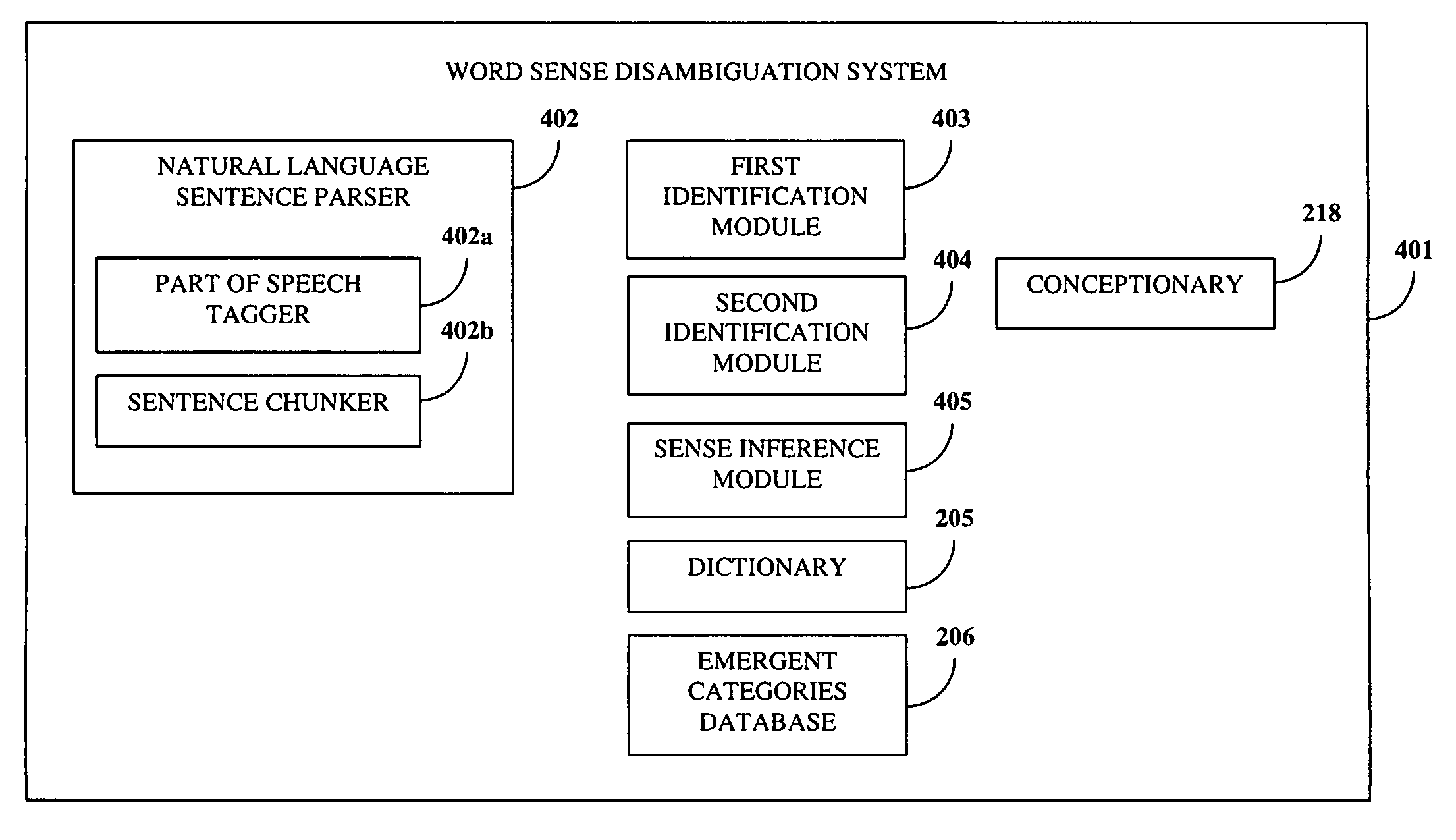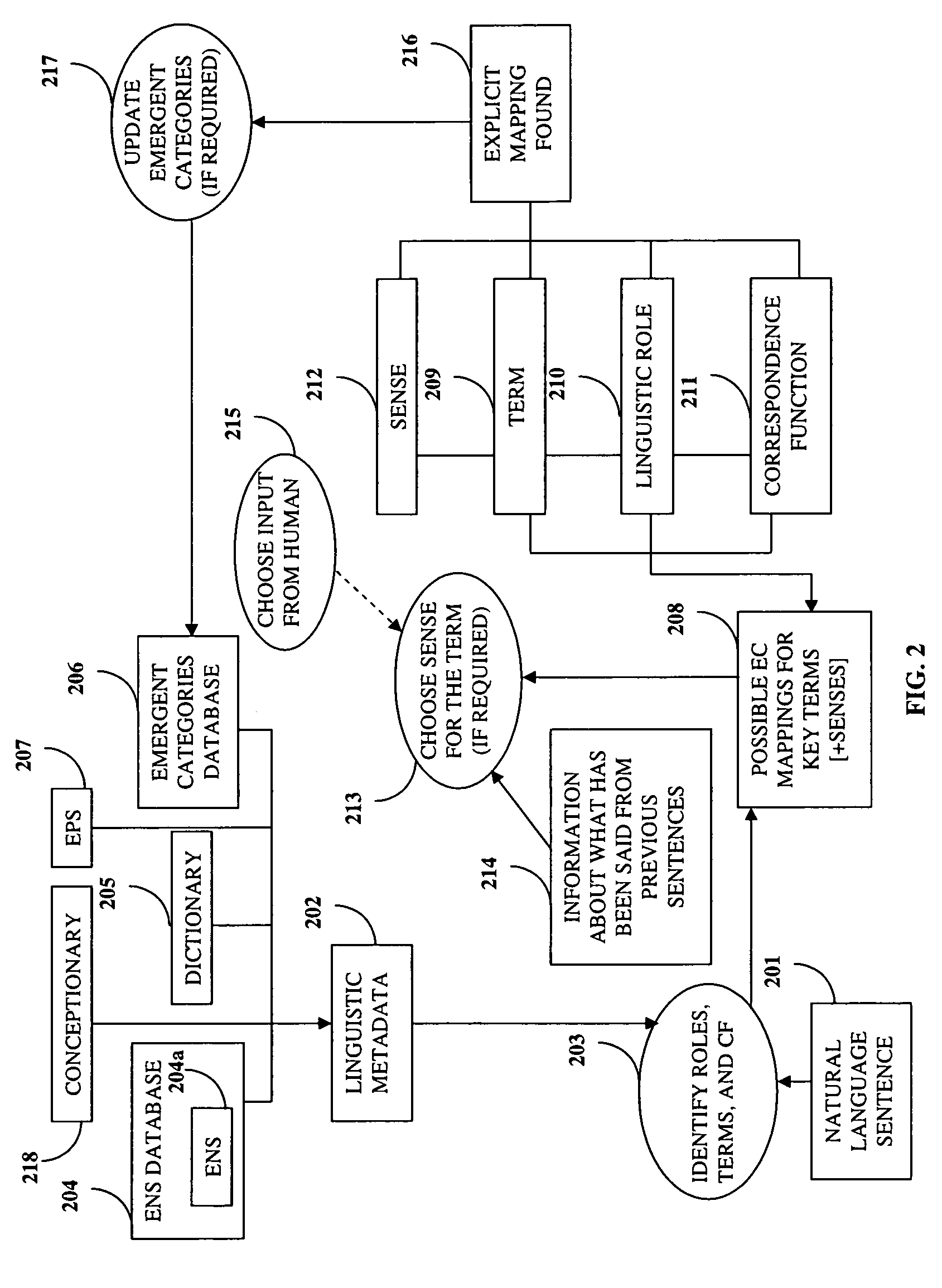Word sense disambiguation using emergent categories
a technology of emergent categories and word sense, applied in the field of computational linguistics, can solve problems such as the difficulty of developing algorithms to replicate human ability
- Summary
- Abstract
- Description
- Claims
- Application Information
AI Technical Summary
Benefits of technology
Problems solved by technology
Method used
Image
Examples
case 1
nse 212 wi•sk already belongs to one or more categories ci . . . j. In this case function F is defined by:
[0287]1) Deriving the possible valid parings {ci.wi.sk:cj.wj.sh} using each corresponding COij.[0288]2) Inferring other valid COij and hence more possible valid parings {ci.wi.sk:cj.wj.sh} using “EC”.
case 2
nse 212 wi•sk does not belong to any of the categories.
There may exist only one grammatically valid sense 212 wi.sk and one wj.sh pairing combination possible. In this case function F is defined by:[0289]1) Assuming wi.sk:wj.sh is a valid pairing, adding wi.sk to:[0290]a. The appropriate category ci whose member senses have a correspondence with wj.sh; and to[0291]b. All categories cj . . . k in the EC where ci is a member.[0292]c. However, if no appropriate category ci exists, i.e. a category with member senses having correspondence with wj.sh, then creating two new categories, ci for wi.sk and cj for wj.sh, such that correspondence function CO(ci, cj) establishes the pairing wi.sk:wj.sh.
[0293]There may exist more than one grammatically valid pairing possible. In this case, each pair-wise combination is treated as a valid pairing and handled as case 2 above. However, if there is no grammatically valid pairing possible, either the pairing may be rejected as meaningless or the words ...
PUM
 Login to View More
Login to View More Abstract
Description
Claims
Application Information
 Login to View More
Login to View More - R&D
- Intellectual Property
- Life Sciences
- Materials
- Tech Scout
- Unparalleled Data Quality
- Higher Quality Content
- 60% Fewer Hallucinations
Browse by: Latest US Patents, China's latest patents, Technical Efficacy Thesaurus, Application Domain, Technology Topic, Popular Technical Reports.
© 2025 PatSnap. All rights reserved.Legal|Privacy policy|Modern Slavery Act Transparency Statement|Sitemap|About US| Contact US: help@patsnap.com



